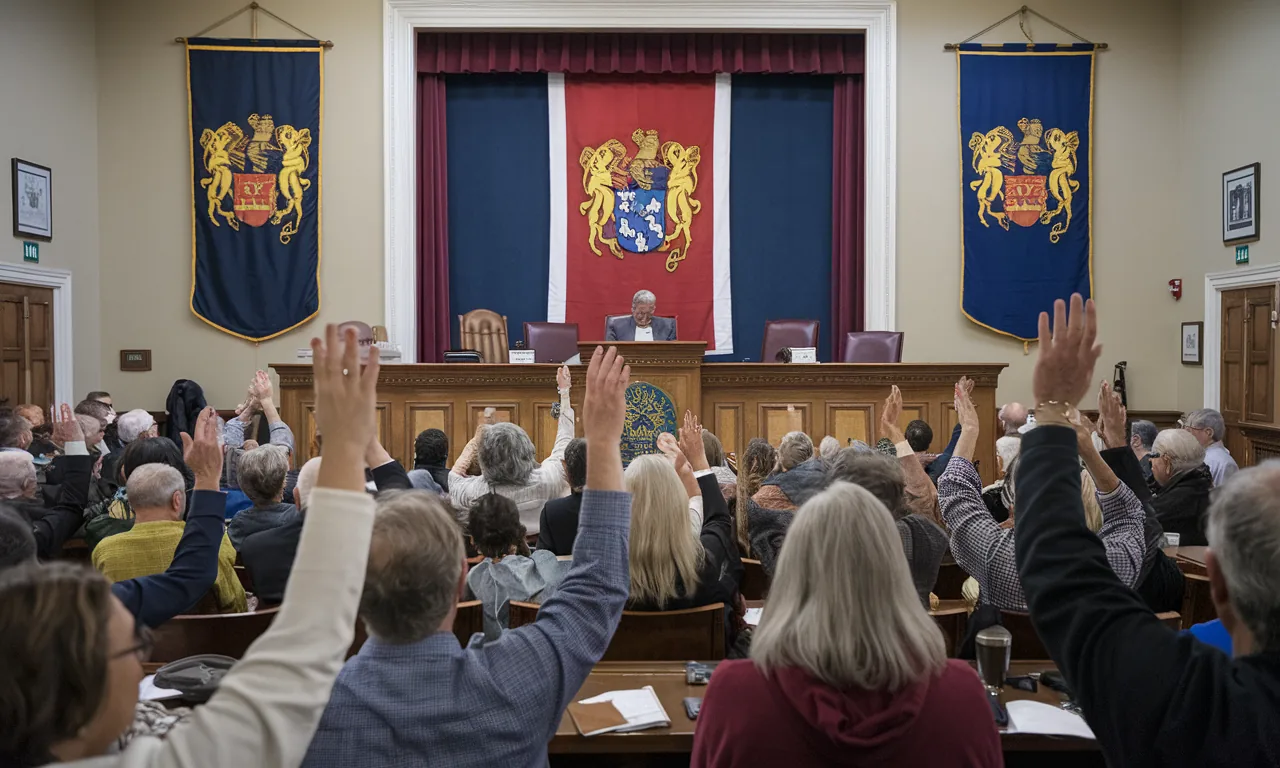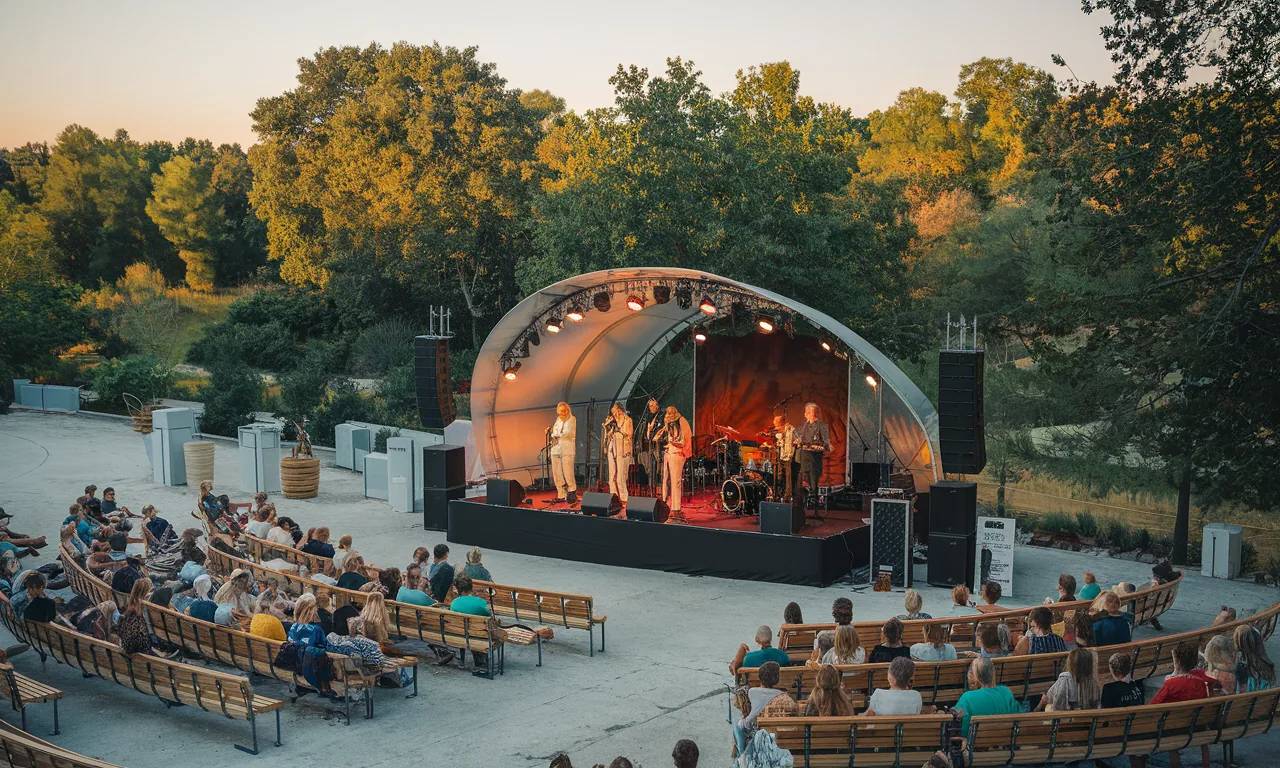Town Hall Meetings in Hof: Experience & Participate in City Politics
Town Hall Meetings in Hof: Experience and Participate in City Politics
How much city politics fits into one evening – and why is a small piece of paper full of questions worth it? In Hof, town hall meetings transparently show how decisions are made that will make your route to school safer tomorrow, strengthen cycling infrastructure, or provide protection during heavy rainfall.
What happens at a town hall meeting?
Town hall meetings are public forums of local democracy. City leadership and specialist departments provide structured reports on current projects, figures, and plans. This is followed by an open question round: citizens contribute suggestions, ask follow-up questions, and bring impulses from their everyday reality – from traffic and housing to energy savings.
For Hof, this means: You receive a compact overview of key topics in urban development, cycling policy, and infrastructure, supplemented with information on finances and timelines – and you can engage directly with those responsible.
Dates, districts, easy participation
Town hall meetings are held annually in many municipalities – often as a series covering several city districts. This makes it easier to participate locally and reflects different focal points (city center vs. outskirts). In Hof, meetings are usually scheduled in the evenings so that working people can attend.
- Who can participate? Essentially all residents; guests are usually welcome.
- How do I find out about dates? The city publishes an overview with district assignment, time, place, and deadlines for advance questions. Tip: Visit Hof's website and search for "Bürgerversammlung" (town hall meeting) or the council information system. Direct access: hof.de.
- Submit questions in advance: Often possible online or in writing. Advantage: specialist departments can prepare data and clarify responsibilities. Deadlines for advance questions typically end a few days before the meeting.
- Open question round on site: After the reports, contributions from the floor are collected. Short speaking times are common so that many have a chance to speak.
Practical tip: The “best” question is often the one that is submitted in time before the meeting – then the answer will be more precise.
Topics that move Hof – from traffic to flood prevention
- Traffic and cycling: Intersections, safe school routes, closing gaps in the cycling network, parking, traffic calming.
- Housing and urban development: New developments, densification, design of public spaces, affordable housing.
- Energy and savings: Street lighting, renovation of municipal buildings, local renewable energy.
- Heavy rain/flooding: Retention basins, drainage, emergency plans, resilience in at-risk streets.
- Social and education: Childcare, youth work, senior-friendly infrastructure, integration, participation.
At topic-specific evenings, data, maps, and scenarios are on the table – for example, for flood prevention. Vague worries become concrete actions: Where does water drain? Which street needs new drains? Which cellars are at risk?
For the local economy, this dialogue provides planning certainty: trade and crafts learn early about construction sites, project developments, and timelines.
Legal framework: What applies in Hof?
Hof is in Bavaria. The legal framework for town hall meetings is set out in the Bavarian Municipal Code (Art. 18 BayGO). It regulates, among other things, convening, contents, and question rights. Similar provisions exist in other states, e.g., the town hall meeting in the Hessian Municipal Code (§ 8a HGO).
Important: Town hall meetings do not replace decision-making bodies (city council, committees). They provide input, which politicians weigh in the formal process. If you want to advance an issue systematically, you can also use citizens' question times, petitions, or formal participation procedures.
This is how you prepare – and participate
- Check the date: Find the date for your district. Plan your travel there and back.
- Collect questions: Note specific issues with location, time, photo, or sketch. Submit complex questions in advance (observe deadline).
- Bring neighbors: Different perspectives – from club chairpersons to student representatives – improve the discussion.
- Follow up: After the meeting, track resolutions and implementation status, e.g., in the council information system.
Template for a precise advance question
Subject: Question regarding the town hall meeting [district], topic [e.g., school route safety on Musterstraße]
Issue: On [date] at about [time], there are regularly dangerous situations for children on the way to school at the intersection [location] (photo attached). The traffic light phase allows turning vehicles and crossing pedestrians at the same time.
Questions/suggestions:
- Is the city considering adjusting the traffic light phases or separate controls?
- Are there accident data/near misses for this intersection?
- What short-term measures (e.g., yellow markings, visibility triangles) are possible?
Contact: [Name], [Address optional], [Email], [Phone]
Submission note: Use the city's online form or email (link/address see the announcement). TODO: Add specific link to Hof’s event page/submission address once available.
Trends and outlook
- Digital supplements: Livestreams, online questions, and interactive maps lower barriers. Hybrid formats expand reach.
- Data-driven planning: Traffic counts, geodata on heavy rain, noise, or heat make discussions more concrete.
- Resilient city: Climate adaptation, sponge city principles, green spaces, and flood protection are more often on the agenda.
- Transparency: Early information, fixed annual cycles, understandable protocols, and feedback strengthen trust.
FAQ: Frequently Asked Practical Questions
Do I have to register?
Usually no. Details can be found in the respective event announcement.
How long can I speak?
Many meetings set short speaking times so that everyone can have a say. The chair moderates and can follow up or summarize.
Can I submit motions?
Formal decisions are made by the city council or its committees. At town hall meetings, concerns are presented and suggestions are recorded.
Sources and further information
- Bavarian Municipal Code (BayGO), Art. 18 Town Hall Meeting — Legal basis for Bavaria (accessed 2025-11-13)
- Hessian Municipal Code (HGO), § 8a Town Hall Meeting — Example of state regulation (accessed 2025-11-13)
- City of Hof – Official website — Current information, dates, contact (accessed 2025-11-13)
- Federal Agency for Civic Education (bpb): Local Politics — Background and context (accessed 2025-11-13)




